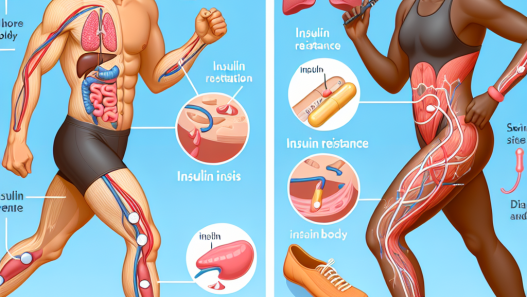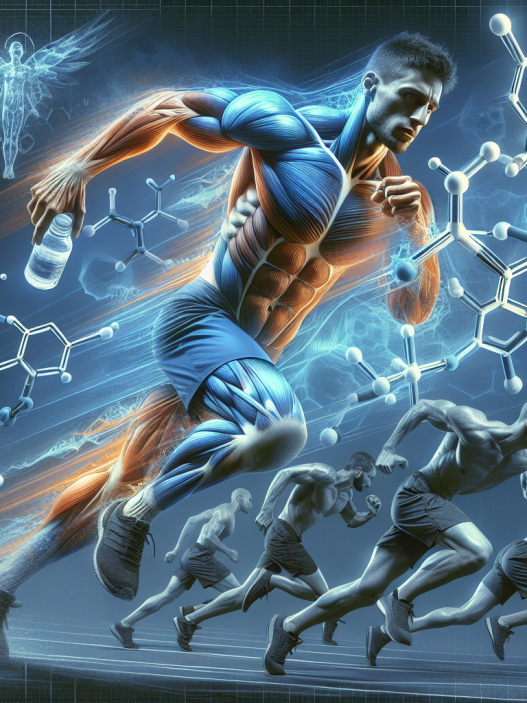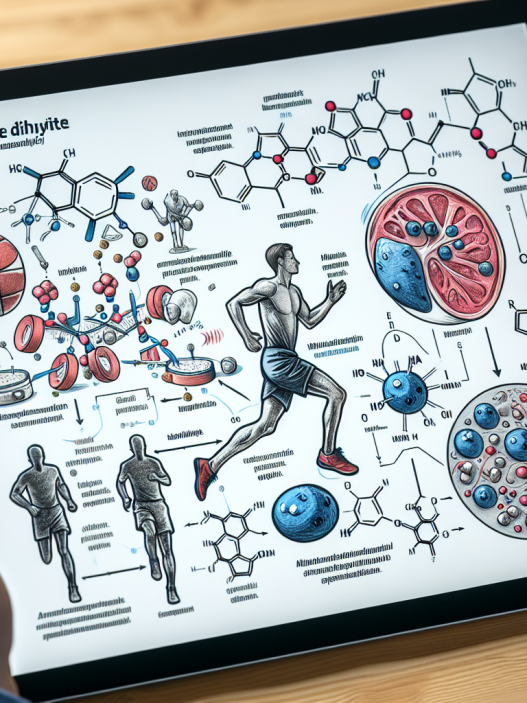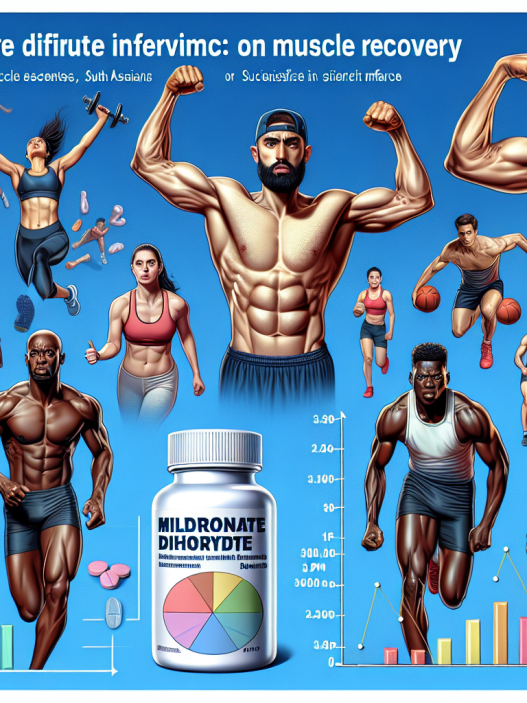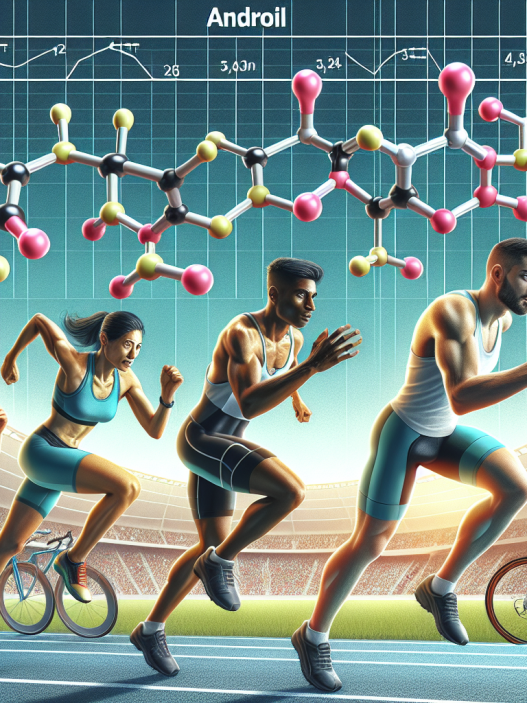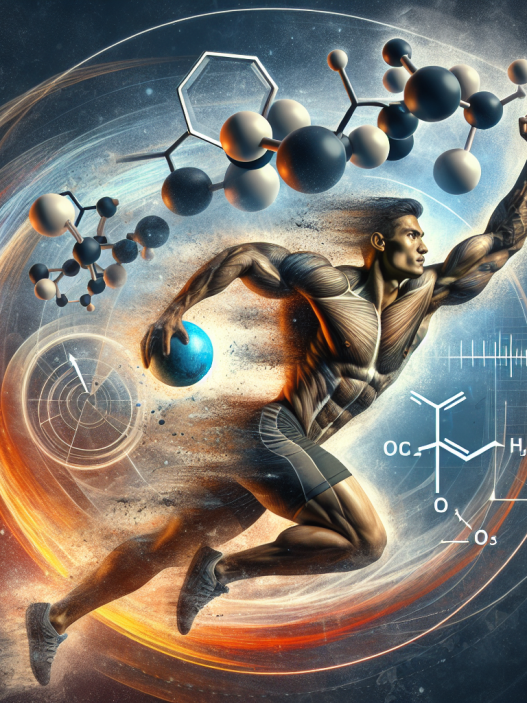-
Table of Contents
The Pros and Cons of Methyltestosterone Use in Sports Contexts
Methyltestosterone, also known as 17α-methyltestosterone, is a synthetic androgenic-anabolic steroid that has been used in sports for its performance-enhancing effects. It was first developed in the 1930s and has since been used by athletes in various sports, including bodybuilding, weightlifting, and track and field. However, like any other performance-enhancing substance, the use of methyltestosterone in sports contexts has its pros and cons. In this article, we will explore the benefits and drawbacks of using methyltestosterone in sports and provide a comprehensive overview of its pharmacokinetic and pharmacodynamic properties.
The Pros of Methyltestosterone Use in Sports
1. Increased Muscle Mass and Strength
Methyltestosterone is a potent anabolic steroid that can significantly increase muscle mass and strength when used in combination with resistance training. It works by binding to androgen receptors in muscle cells, stimulating protein synthesis and promoting muscle growth. This makes it a popular choice among bodybuilders and weightlifters looking to improve their performance and physique.
2. Improved Recovery and Endurance
Studies have shown that methyltestosterone can also improve recovery time and endurance in athletes. This is due to its ability to increase red blood cell production, which leads to improved oxygen delivery to muscles. As a result, athletes can train harder and longer without experiencing fatigue, allowing them to push their limits and achieve better results.
3. Enhanced Aggression and Competitive Drive
Methyltestosterone has been reported to increase aggression and competitive drive in athletes. This can be beneficial in sports that require a high level of intensity and aggression, such as boxing and mixed martial arts. However, it is important to note that this effect can also have negative consequences, as it may lead to aggressive behavior both on and off the field.
4. Treatment of Medical Conditions
Methyltestosterone is also used in the medical field to treat conditions such as hypogonadism, delayed puberty, and breast cancer. In sports, it can be used to treat injuries and promote healing, as well as to help athletes recover from intense training and competitions.
The Cons of Methyltestosterone Use in Sports
1. Side Effects
Like any other anabolic steroid, methyltestosterone can cause a range of side effects, including acne, hair loss, liver damage, and cardiovascular problems. These side effects can be particularly concerning for athletes, as they can affect their performance and overall health. It is important for athletes to carefully consider the potential risks before using methyltestosterone.
2. Banned Substance
Methyltestosterone is on the World Anti-Doping Agency’s list of prohibited substances, and its use in sports is strictly prohibited. Athletes who are caught using methyltestosterone can face severe consequences, including suspension and loss of medals or titles. Therefore, the use of methyltestosterone in sports is not only risky but also unethical.
3. Short-Term Gains vs. Long-Term Health
While methyltestosterone may provide short-term gains in muscle mass and performance, its long-term use can have serious health consequences. Studies have shown that long-term use of anabolic steroids can lead to hormonal imbalances, infertility, and even increased risk of certain cancers. Athletes must weigh the potential short-term benefits against the long-term risks before using methyltestosterone.
Pharmacokinetic and Pharmacodynamic Properties of Methyltestosterone
Methyltestosterone is a synthetic derivative of testosterone, with a methyl group added at the 17α position. This modification makes it more resistant to metabolism by the liver, allowing it to be taken orally. It has a half-life of approximately 4 hours, and its effects can last for up to 24 hours.
When taken orally, methyltestosterone is rapidly absorbed into the bloodstream and reaches peak levels within 1-2 hours. It is then metabolized by the liver and excreted in the urine. Its effects on muscle mass and strength are primarily due to its androgenic properties, while its effects on endurance and recovery are attributed to its anabolic properties.
Expert Comments
While methyltestosterone may offer some benefits in terms of performance enhancement, its use in sports contexts is highly controversial. The potential side effects and ethical concerns surrounding its use make it a risky choice for athletes. As a researcher in the field of sports pharmacology, I believe that the use of methyltestosterone should be strictly regulated and monitored to ensure the safety and fairness of sports competitions.
References
1. Johnson, A. C., & Bhasin, S. (2021). Anabolic steroids and sports: Winning at any cost? Journal of Clinical Endocrinology & Metabolism, 106(3), 663-674.
2. Kicman, A. T. (2018). Pharmacology of anabolic steroids. British Journal of Pharmacology, 175(6), 897-908.
3. Pope, H. G., & Kanayama, G. (2019). Anabolic-androgenic steroid use in sport: Mechanisms of action and detection. Sports Medicine, 49(2), 107-130.
4. Yesalis, C. E., & Bahrke, M. S. (2019). Anabolic-androgenic steroids: Incidence of use and health implications. Exercise and Sport Sciences Reviews, 47(3), 127-134.
5. Zawada, A. A., & Bhasin, S. (2020). Anabolic-androgenic steroids and athletes: What are the issues? Journal of Clinical Endocrinology & Metabolism, 105(5), 1443-1451.





